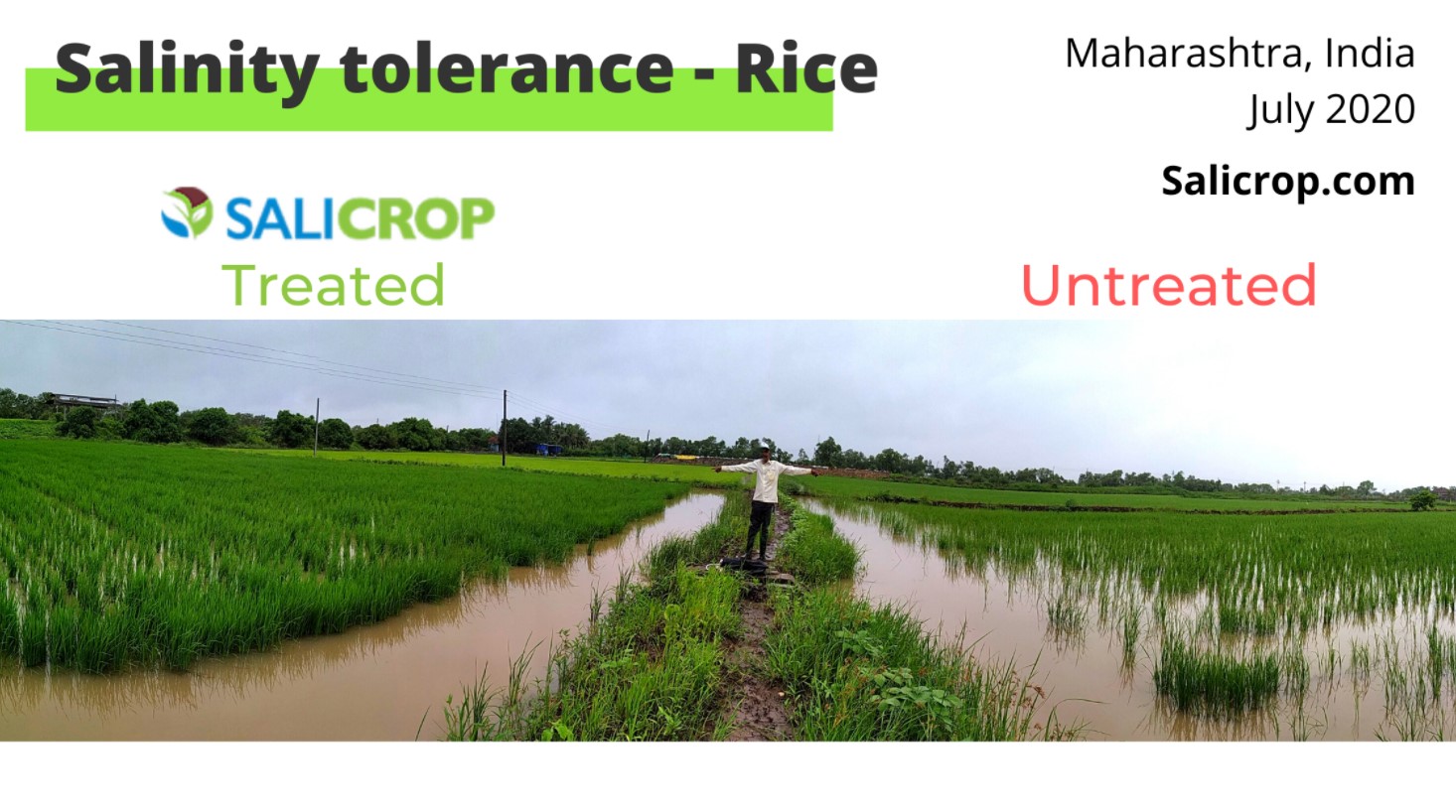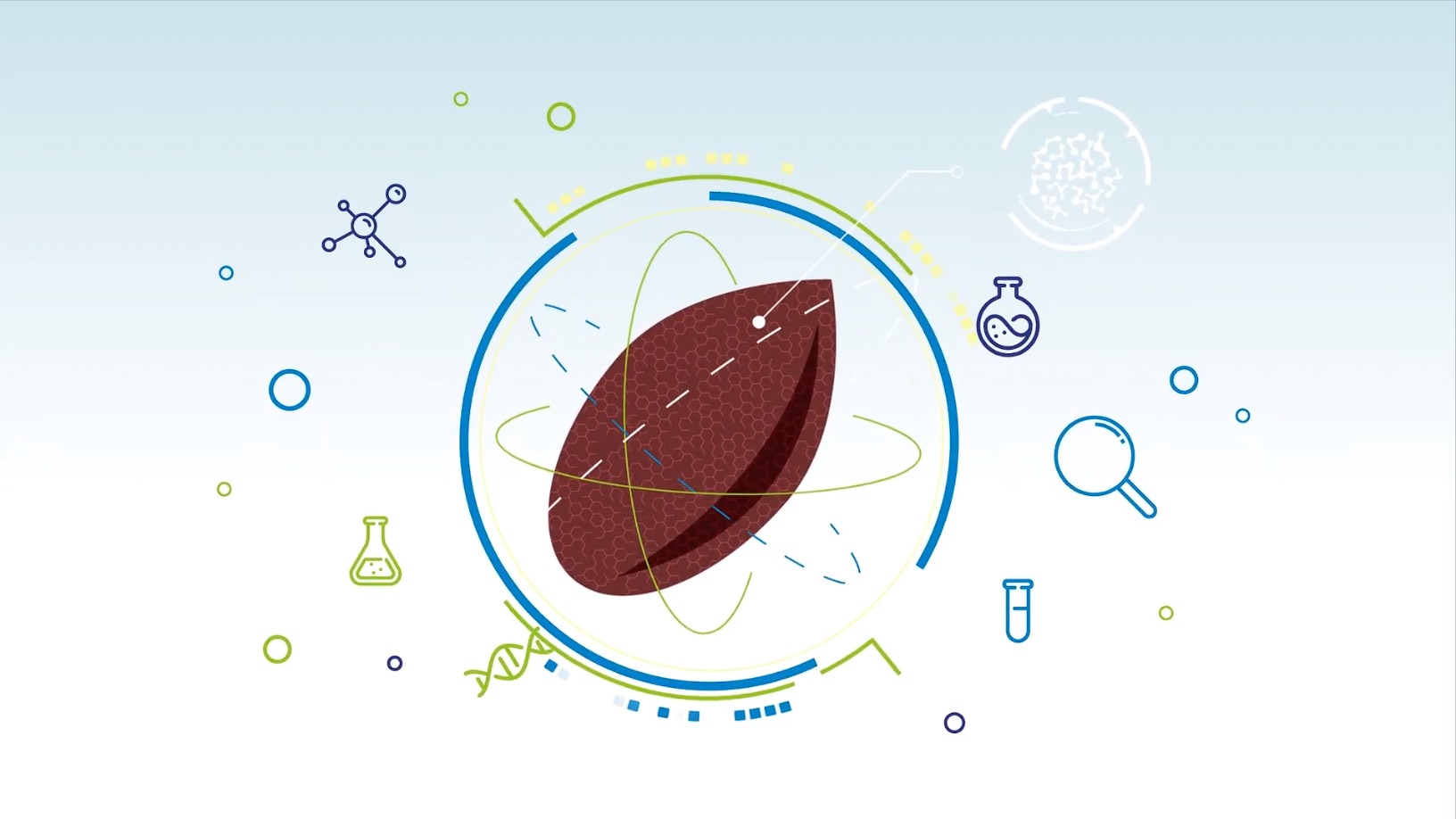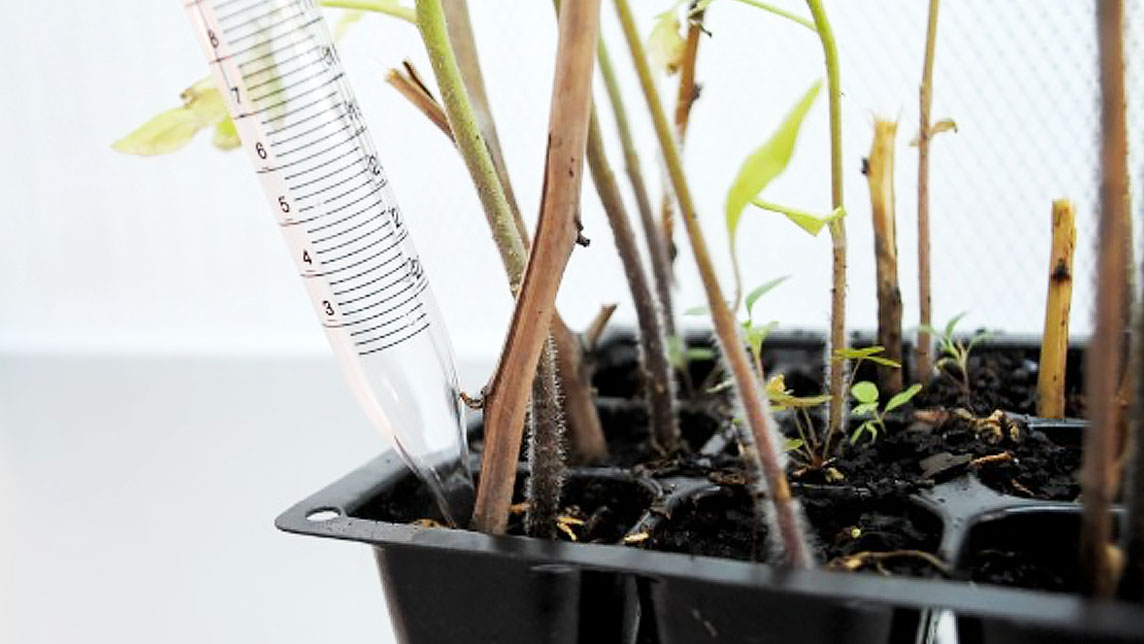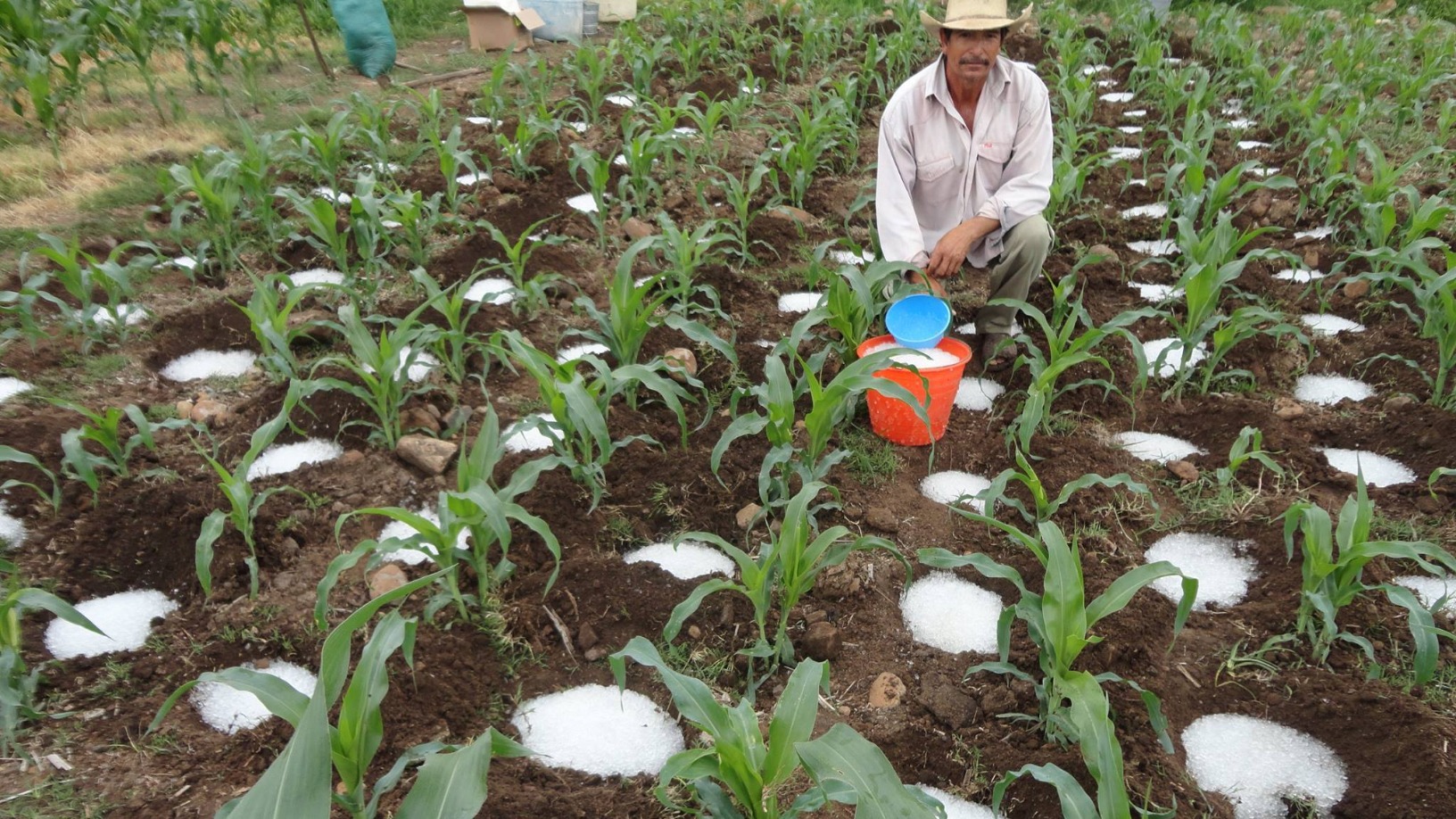Nearly 20 percent of irrigated farmland is too saline for crops to grow well, causing loss in yields and in farmers’ income. Israel-based startup Salicrop wants to solve this problem by creating seeds that can grow in salty conditions. Unlike other companies and groups developing salt-resistant crops, however, Salicrop is not doing any genetic engineering.
Salicrop can create resistance to saline conditions by using a chemical treatment on regular plant seeds. CEO Dotan Borenstein, who spoke to CompassList via online call, said that their treated seeds have been tested in real farmland, achieving at least 12% better yields than untreated seeds in saline soil. So far, the success has been shown in cereals such as rice, wheat, and corn, as well as tomato and lettuce crops.
In India, the company has tested its treated rice seeds in coastal areas as well as in Rajasthan, where the desert conditions see temperatures as high 50 degrees Celsius during heat waves. In Israel, tests were done on corn and wheat grown in dry, high-salinity areas.
Salicrop has raised $1.1m in funding so far. Borenstein says the company plans to close a Series A round next year and that the funds would be used to support their commercialization plans in Israel and India.
Epigenetic engineering
Research groups and corporations have been working to develop salt-resistant crops that can grow in harsh conditions. Usually, this involves genetic engineering to add salt resistance traits, which can come from other plant species, such as seagrass or mangrove plants. It is also possible to cross-breed existing crops to discover salt-resistant varieties. The process is repeated to get a hybrid that’s salt-resistant but also economically desirable in terms of yield, taste, and other characteristics.
In both cases, scientists need to identify the genes that confer salt resistance traits and try to produce seeds that can inherit those traits. Borenstein said that these methods take a long time to produce new varieties. “With gene editing, it might take 15 years or 15 planting cycles to get a salt-resistant variety. With more classical plant breeding, it might take seven.”
Salicrop’s seed treatment does not modify the genes directly. Rather, the chemicals and environmental conditions used in its seed treatment process change how the plant’s existing genes are expressed. These epigenetic changes last through the plant’s lifetime without changing its existing gene make-up. They can improve the plant’s ability to survive in high-salt conditions and reduce salt damage on the harvested crop. Salicrop declined to share the details of the treatment process, as they are applying for a patent.
Crucially, the treatment’s effectiveness can be verified much faster than gene editing or cross-breeding. Salicrop can develop multiple potential treatments and test them all in parallel with small batches of seeds. After one growing cycle , the company can identify which treatments are most successful in improving yield and tweak them to develop the best method.

Two countries, one problem
Salicrop was founded in 2013 by Indian plant biologist Rca Godbole and two Israeli co-founders: agronomist Omar Massarwa and agricultural engineer Sharon Devir. Godbole had observed how coastal farmers in Mumbai struggled with salty soil conditions, which are worsened by tropical storms. When Godbole visited Israel for a conference, she met Massarwa and Devir, who had also seen such conditions in Israel’s desert farmlands.
The natural factors that lead to soil salinity are made worse by human activities. When fresh water is drawn up from underground aquifers, minerals from the water can leach into the higher layers of the soil, increasing salinity. Agricultural activities such as soil tilling and use of fertilizers also increase salt concentrations. In extreme situations, white salt particles can even be seen on the soil surface. Farmers have to irrigate the soil extensively to mitigate salty conditions, but this can be difficult in deserts and in coastal areas where only brackish water is available.
With these shared characteristics between Israel and India, Salicrop decided to set up shop and conduct its tests in these two regions. The Salicrop team comprises eight people, including Borenstein and the three co-founders, as well as two members based in India. The team frequently traveled between the two countries before the Covid-19 pandemic.
Selling knowhow
After more than seven years of development and trials, Salicrop is gearing up for commercialization. Borenstein said the plan starts with sponsored pilot projects in which Salicrop earns revenue from seed companies testing the system. If the companies are satisfied with the pilot’s results, they can pay for a license to use the seed treatment technology. “We’re selling knowhow,” said Borenstein, adding that Salicrop plans to start the process next year.
Borenstein also said that scaling up testing and treatment processes is a considerable challenge in the commercialization process. Salicrop has been performing its research in small batches of seeds and agricultural land. While this is enough for proof-of-concept trials, it will need to test with larger batches to satisfy the needs of bigger clients.
To support its commercialization plans, Salicrop plans to raise new Series A funding by next year. While Borenstein did not disclose the target amount for the upcoming round, he mentioned that Salicrop had raised $500,000 in seed funding from undisclosed individual investors earlier this year. In 2019, it received $600,000 in seed funding from Israeli agritech investor Rimonim Fund.
Borenstein said that the company is a good fit for agritech and impact investors, since they are driven by a mission to help farmers at all scales improve their livelihoods. “We are trying to reach smallholder farmers, large-scale farmers, and governments alike. What we’re doing is measurable; we have demonstrated that we can really improve yields.”












